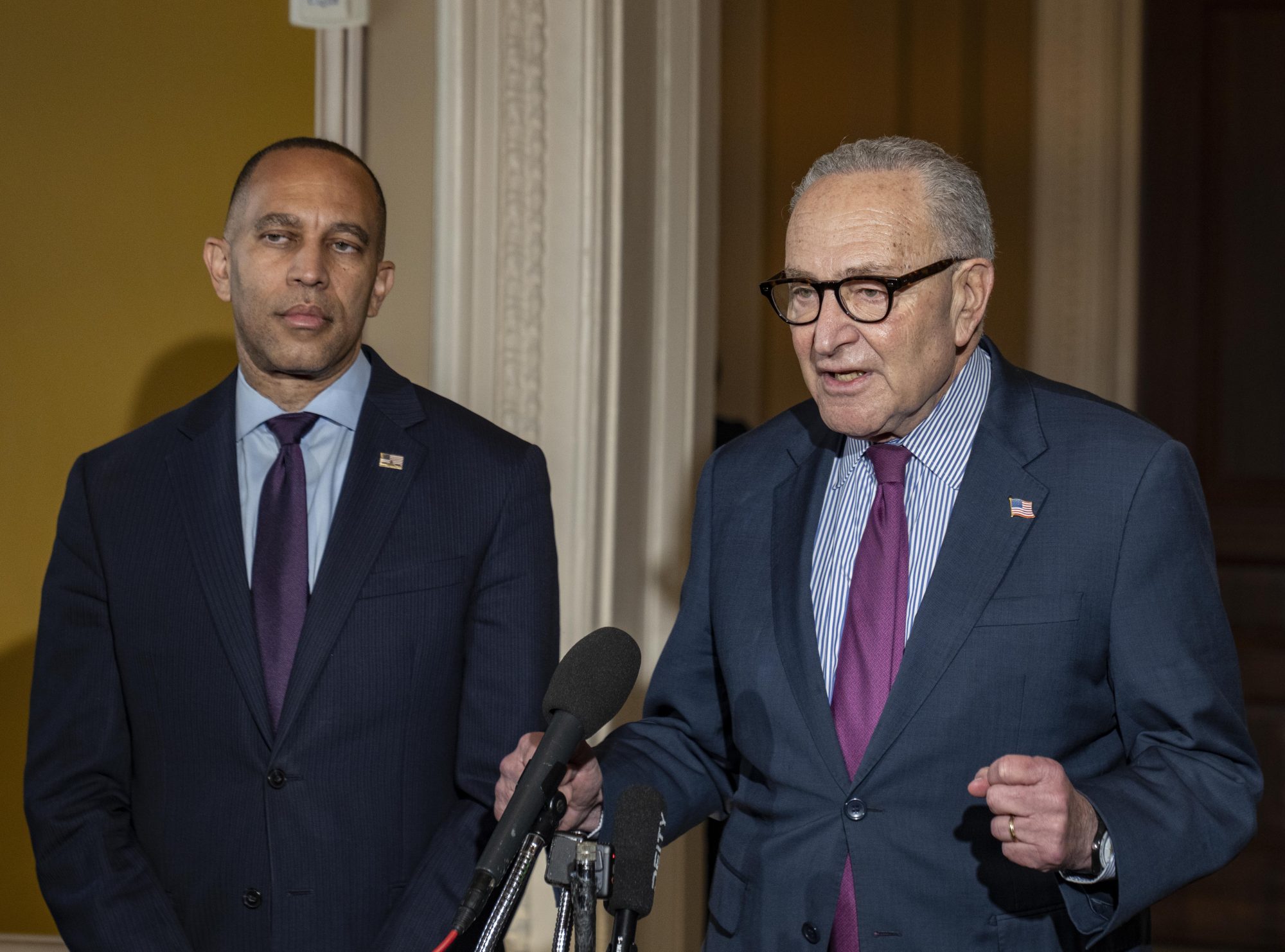Conservative: Blue Wave ’26 Hopes Dim
“With midterm elections just about a year away,” observes USA Today’s Ingrid Jacques, odds for “a blue wave” now look “grim,” with any repeat of the 2018 wave “out of reach.” Democrats now face “historically low marks” from voters, “and it’s hard to see them turning things around by November 2026.”
Republicans “aren’t wildly popular, either,” but “continue to outscore Democrats. In 2017, the Democrats had the advantage.” Plus, President Trump’s “second-term approval is higher than that of former Presidents Barack Obama and George W. Bush at the same time during their second terms.”
Nor can Democrats count on the government shutdown, which is “already starting to sour” for them, or “No Kings” or other protests, which lack sufficient “fervor.”
Pollsters: ‘Shutdown’ Strategy = Empty Agenda
“The ongoing government shutdown is a symptom of a much larger dilemma facing the Democratic Party today,” argue Douglas Schoen & Carly Cooperman at The Hill. Their “belief that Republicans, as the party in power, would shoulder an outsized share of the blame” appears misplaced, as polls show at best a slight edge for Democrats on the question.
Worse, the “‘oppose at all costs’ strategy leaves Democrats failing to offer an issues-driven agenda of their own.” Voters may be “unhappy with Trump and his handling of critical issues” but “they still trust Democrats even less.”
Democrats must focus on “how they can best make their case to voters,” not on “merely resisting Trump and Republicans’ agenda.”
Higher-ed Beat: Viewpoint Diversity or Die
The “conversation” about “viewpoint diversity” in academia is ongoing and now “existential,” explains The Washington Post’s Megan McCardle: “Rebuttals to viewpoint diversity” tend to be “empirically false” as well as “propaganda.” Academics may “recoil” from the idea that being “paid to pursue truth” requires accepting “some secondary, external aims,” but “the people who provide that money want something in return.”
Academia’s status isn’t what it was “30 or 50 years ago,” as “the value of a college degree is stagnant” and “public trust in universities has plummeted.” We don’t know “whether having more conservatives will elevate the quality of academia’s research output,” but “they might have checked the unforced errors that ravaged higher education’s reputation.”
Campus Watch: Damning Silence on Kirk Murder
“In 2020, college and university presidents lined up to issue statements about George Floyd’s tragic death, despite the event’s lack of any direct connection to higher education,” but “were much quieter after Charlie Kirk’s horrific murder last month, even though that incident was a direct assault on the very purpose of their institutions,” note Steven McGuire & Just.
Kirk was assassinated as he debated students on a college campus. This heinous attack stoked concerns across American universities about safety and the free exchange of ideas in academia, yet just “17 out of 100 leaders of top colleges made public statements about it,” though “in 2020, 94 of those institutions issued leadership-level statements about Floyd.”
Argh: “More than a third of college students are unwilling to rule out using violence to stop someone from speaking his mind. These young adults need better guidance.”
Libertarian: Utah’s Fight for Non-Union Workers
Utah’s Legislature this year passed House Bill 267, which bans public sector collective bargaining, among other reforms that boost transparency and non-union workers, but the law is under attack, reports C. Jarrett Dieterle at Reason.
Unions are “taking the fight to the ballot box,” collecting “more than 320,000 signatures” to get “a repeal measure on the November 2026 ballot.” And “Republican Gov. Spencer Cox, who signed the bill into law, has since distanced himself from it.”
Mistake: His “timidity in defending the law, which gives workers more choice by ending union monopolies over representation, is misguided.”
“For those on the policy right, the task isn’t just defending H. B. 267; it’s making a clear case for being pro-worker without being pro-union.”
Compiled by The Post Editorial Board.

